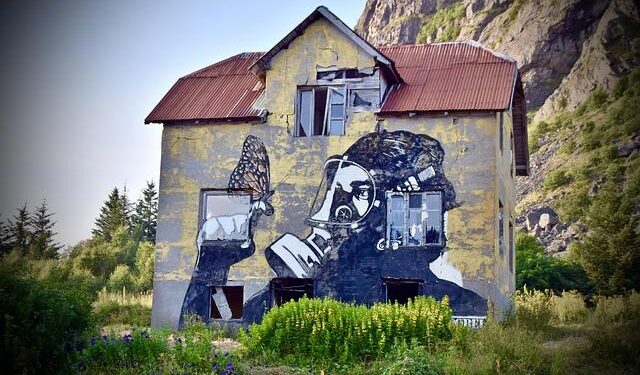In recent years, Europe has witnessed the rise of right-wing movements that mirror many aspects of former U.S. President Donald Trump’s political style and rhetoric. Yet, despite these surface similarities, the European right embodies a paradox: while channeling nationalist and populist sentiments, it operates within distinct political landscapes shaped by different histories, institutions, and societal norms. This article explores the complex and often contradictory nature of Europe’s so-called Trumpian right, analyzing how these parties and leaders both converge with and diverge from their American counterpart in ideology, strategy, and impact on the continent’s future.
The Rise of Europe’s Trumpian Right and Its Contradictory Ideologies
Across Europe, right-wing movements inspired by Donald Trump’s brand of populism have surged, yet their ideological makeup is far from monolithic. These groups often champion national sovereignty and anti-immigration policies, while paradoxically embracing both protectionist economic measures and free-market rhetoric. This contradictory stance reflects an ongoing tension between appealing to working-class voters wary of globalization and courting elite interests that benefit from deregulation. Furthermore, their position on the European Union oscillates between calls for outright exit and demands for reform, revealing a fragmented vision of Europe’s future.
The right’s ideological incoherence is further complicated by divergent views on social issues and alliances. Some factions aggressively promote traditional family values and cultural homogeneity, whereas others adopt more libertarian attitudes toward personal freedoms. This inconsistency extends to foreign policy, where nationalist rhetoric coexists uneasily with pragmatic partnerships. Consider the following snapshot of key stances within these groups:
| Issue | Position A | Position B |
|---|---|---|
| Economic Policy | Protectionism | Market Liberalism |
| Immigration | Strict Border Control | Selective Integration |
| EU Membership | Exit (Frexit, Italexit, etc.) | Reform from Within |
| Social Values | Conservative Traditionalism | Libertarianism on Lifestyle |
| Foreign Alliances | Nationalist Skepticism | Transactional Cooperation |
How Populist Movements Challenge Traditional European Values
Populist movements across Europe have surged by positioning themselves as defenders of a “pure” national identity, frequently setting themselves against what they perceive as the continent’s liberal, multicultural order. This has created tension by challenging foundational European values such as pluralism, tolerance, and democratic consensus-building. Their rhetoric often frames traditional institutions-like the EU, mainstream media, and established political parties-as corrupt or alien, fostering a narrative that pits “the people” against elitist structures. This antagonistic stance not only disrupts long-standing political norms but also undermines cooperative frameworks essential to the European project.
These movements often employ tactics that blur the lines between democratic engagement and authoritarian impulses. Key traits include:
- Nationalist revivalism directed at restricting immigration and asserting cultural homogeneity.
- Skepticism toward supranational governance, especially the European Union, framed as a threat to sovereignty.
- Populist media strategies that exploit social networks and alternative platforms to bypass traditional gatekeepers.
| Populist Party | Core Challenge to Values | Dominant Rhetoric |
|---|---|---|
| France’s National Rally | Immigration restrictions | National identity preservation |
| Italy’s League | EU skepticism | Economic sovereignty |
| Hungary’s Fidesz | Judicial independence | “Christian values” emphasis |
Strategic Responses to Reclaim Moderate Politics and Strengthen Democratic Institutions
Confronting the surge of right-wing populism in Europe requires a multifaceted approach that actively distances democratic frameworks from extremist narratives. Central to this challenge is the reinforcement of moderate political voices that can bridge societal divides and offer pragmatic solutions to economic and social grievances. Governments and civil society must prioritize transparency in policy-making and inclusive dialogue that rebuilds trust among disenchanted voters. Engaging marginalized communities through targeted outreach programs and educational initiatives fosters resilience against polarizing rhetoric, while empowering centrists to reclaim their platforms.
Strengthening democratic institutions also means modernizing electoral systems to safeguard fair representation and prevent manipulation by populist factions. Investments in digital literacy and media regulation are crucial to counteract misinformation campaigns that fuel political extremes. The table below outlines key strategic measures that can bolster Europe’s democratic health:
| Strategy | Objective | Expected Impact |
|---|---|---|
| Electoral Reform | Fairer representation | Reduce extremist gains |
| Media Literacy Programs | Combat misinformation | Informed electorate |
| Community Engagement | Rebuild social cohesion | Strengthened civic trust |
| Policy Transparency | Increase accountability | Greater political legitimacy |
- Promote bipartisan collaboration: Encouraging cooperation across party lines to focus Certainly! Here’s the continuation and completion of the last bullet point you started, along with a few additional strategic recommendations to complement your content:
- Promote bipartisan collaboration: Encouraging cooperation across party lines to focus on common goals rather than partisan conflicts can reduce polarization and strengthen democratic resilience.
- Support independent media: Funding and protecting journalism free from political and corporate pressures ensures accurate reporting and accountability.
- Enhance civic education: Implementing comprehensive civics curricula helps citizens understand democratic processes and their role within them.
- Monitor and regulate hate speech: Establishing clear guidelines and enforcement mechanisms to curb hateful and extremist discourse online and offline.
If you want, I can also help with rewriting or expanding any of the paragraphs above, or provide additional data to accompany the strategies. Just let me know!
In Retrospect
In navigating the complex landscape of Europe’s Trumpian right, one thing remains clear: these movements, while mirroring facets of American populism, are deeply entrenched in their own national contexts and histories. As Europe grapples with the paradox of parties that both challenge and adapt to democratic norms, the continent stands at a crossroads. The evolving dynamics of the far right will continue to shape not only domestic politics but also the broader European project in profound and unpredictable ways.














